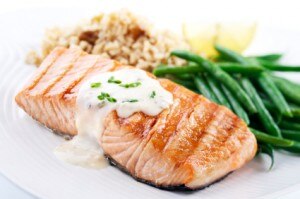By Rachel Begun, MS, RD
It’s getting easier and easier to eat a healthful gluten-free diet. However, due to years of intestinal damage and malabsorption of food, newly diagnosed celiac disease patients are often deficient in nutrients.
While they can be deficient in any number of nutrients, the most common include:
- Iron
- Calcium
- Vitamin D
- Zinc
- Vitamin B12
It is best to resort first to dietary sources of these nutrients, as absorption from food is most efficient. However, if diet alone cannot replenish stores fast enough, oral supplements are a good second source, and best options should be discussed with your physician and registered dietitian.
Here is a list of nutrients and key points to consider for maximizing intake through diet and supplementation.
Nutrient: Iron
Dietary Intake and Supplementation:
- Animal proteins (i.e., beef, poultry, fish) are the richest sources of iron and are more efficiently absorbed than plant sources.
- Whereas gluten-containing cereals and grain products are fortified with iron, gluten-free cereals and grain-based foods are not required to be. Select fortified gluten-free options when available.
- To enhance iron absorption, consume iron-rich foods with vitamin C-rich foods.
- Cooking in iron pots can help increase iron intake.
- Discuss supplementation options with your physician and dietitian.
Nutrient: Calcium
Dietary Intake and Supplementation:
- Calcium is one of four nutrients of concern for Americans, according to the Dietary Guidelines for Americans 2010.
- Secondary lactose intolerance is a common problem in newly diagnosed celiacs, making it important to obtain this nutrient from non-dairy sources. Hard cheeses and cultured dairy products are often better tolerated than liquid milk and soft cheeses.
- Vitamin D is required for calcium absorption, so it’s important to get enough of this vitamin as well.
- Drugs such as corticosteroids, antacids, thyroid hormones and certain antibiotics can negatively affect calcium absorption. Make sure to let your doctors know if you are calcium deficient when they prescribe these drugs.
- Calcium supplementation is recommended for those presenting with bone health issues, such as osteoporosis or osteopenia.
Nutrient: Vitamin D
Dietary Intake and Supplementation:
- Vitamin D is also one of the four nutrients of concern in the American diet.
- Without vitamin D, the body can’t effectively absorb calcium.
- Vitamin D plays a role in many body functions beyond bone health, including: blood pressure and insulin activity regulation; muscle function; and immune system response.
- There are very few dietary sources of vitamin D, often making supplementation necessary to meet daily needs.
- Vitamin D is a fat-soluble vitamin, so it is important to eat adequate amounts of heart-healthy fats to ensure absorption from both foods and supplements.
Nutrient: Zinc
Dietary Intake and Supplementation:
- Zinc plays a vital role in normal growth and development during pregnancy, childhood and adolescence.
- The best dietary sources include: shellfish, beef, gluten-free whole grains, beans, nuts and seeds.
- The bioavailability of zinc from vegetarian diets is lower than meat-containing diets.
- Supplementation may be a greater need in vegetarians and vegans.
Nutrient: B12
Dietary Intake and Supplementation:
- Plant foods are an unreliable source of B12, making it difficult for vegetarians and vegans to maintain adequate stores.
- Vegetarians should rely on dairy, eggs and fortified gluten-free grain foods for their B12 needs and vegans should consider fortified nutritional yeast.
- Gluten-free grain foods are not required to be fortified with B12.
- Some people cannot absorb B12 through dietary sources, but can absorb the synthetic form added to fortified foods and supplements.
The National Foundation for Celiac Awareness offers Vitacost.com website visitors weekly recipes and blogs about living the gluten-free lifestyle. For more information about celiac disease and gluten-free living, visit www.celiaccentral.org.

